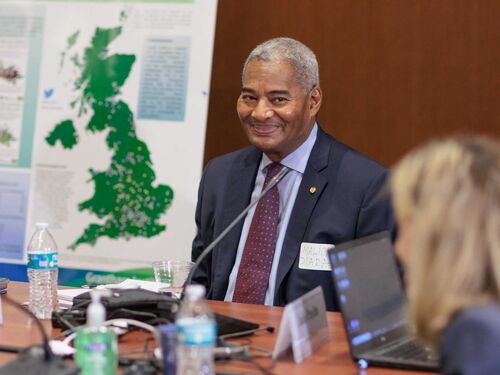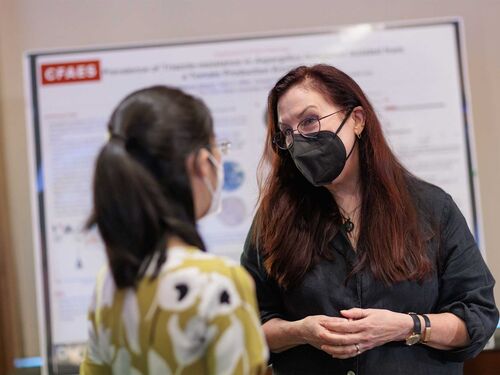Forum on Microbial Threats
The Forum on Microbial Threats provides a trusted, neutral venue for stakeholders to examine critical scientific and policy challenges posed by emerging and reemerging infectious diseases in humans, animals, and plants. It fosters cross-sector dialogue, generates actionable insights, and catalyzes innovation on prevention, detection, surveillance, and response.
In progress
Forum members include prominent leaders from government agencies, academia, nonprofit foundations, the private sector, and international organizations. Forum members come from federal agencies including the U.S. Centers for Disease Control and Prevention, the National Institutes of Health, and the U.S. Agency for International Development; international non- and inter-governmental organizations such as the World Health Organization; and the biomedical industry. In bringing together the world’s leading voices across multiple sectors and disciplines, the forum enables important engagement in tackling complex challenges, analyzing key topics, and strategizing responses to microbial threats. View members.

Forums at the National Academies facilitate collaboration and dialogue among diverse sectors and disciplines. Forum activities explore key issues, identify research agendas, and develop opportunities for further work by hosting stakeholder meetings, convening public workshops, and generating peer-reviewed publications. Although forums do not issue recommendations like consensus study committees do, they can host Action Collaboratives, which create spaces for experts to convene, converse, and publish external papers and commentaries independent of the National Academies.
The Forum on Microbial Threats hosts public workshops and supports various other events and publications produced by global health leaders through the One Health Action Collaborative and other organizations.

The forum is always seeking to engage with new collaborators and sponsors.
Contact us to learn more about how to engage with the forum:

Description
The Forum on Microbial Threats, established in 1996, provides a trusted, neutral venue for thought leaders from government, industry, academia, and nonprofit organizations to examine critical scientific and policy challenges posed by emerging and re-emerging infectious diseases affecting humans, animals, and plants. Forum activities clarify new and persistent problems and help spark innovative approaches to preparedness, detection, surveillance, and response.
Members of the Forum convene several times each year to identify, discuss, and act on key challenges and opportunities in addressing microbial threats. To broaden perspectives, the Forum holds public workshops on critical topics, with proceedings made publicly available, and commissions or supports papers on selected scientific and policy issues. These activities build trust and encourage candid discussions across diverse fields—from human, animal, and plant health communities to pharmaceutical, biotechnology, and diagnostics industries—generating actionable insights that inform research priorities, policy decisions, and collaborative initiatives.
Despite decades of progress, the need for the Forum remains. Global challenges such as MERS, Ebola, Chikungunya, Zika, yellow fever, and antimicrobial resistance demonstrate the persistent, worldwide nature of infectious disease threats. Drivers of disease emergence are increasingly pervasive, and the human, social, and economic consequences continue to grow, underscoring the Forum’s ongoing importance as a venue for sustained, evidence-informed dialogue and cross-sector collaboration.
Contributors
Committee
Chair
Vice Chair
Vice Chair
Sylvain Aldighieri
Member
Member
Member
Member
John Beigel
Member
Member
Member
Member
Member
Member
Member
Member
Honorata (Kuki) L. Hansen
Member
Member
Member
Member
Member
Member
Member
Member
Member
Member
Member
Member
Ex Officio Member
Ex Officio Member
David A. Fidock
Ex Officio Member
Ex Officio Member
Ex Officio Member
Ex Officio Member
Ex Officio Member
Sponsors
American Society of Tropical Medicine and Hygiene
Burroughs Wellcome Fund
Centers for Disease Control and Prevention
Department of Homeland Security
Infectious Diseases Society of America
Merck & Co., Inc.
Society of Infectious Diseases Pharmacists
Staff
Carolyn Shore
Lead
Shalini Singaravelu
Christa Nairn
Major units and sub-units
Center for Health, People, and Places
Lead
Biomedical and Health Sciences Program Area
Lead